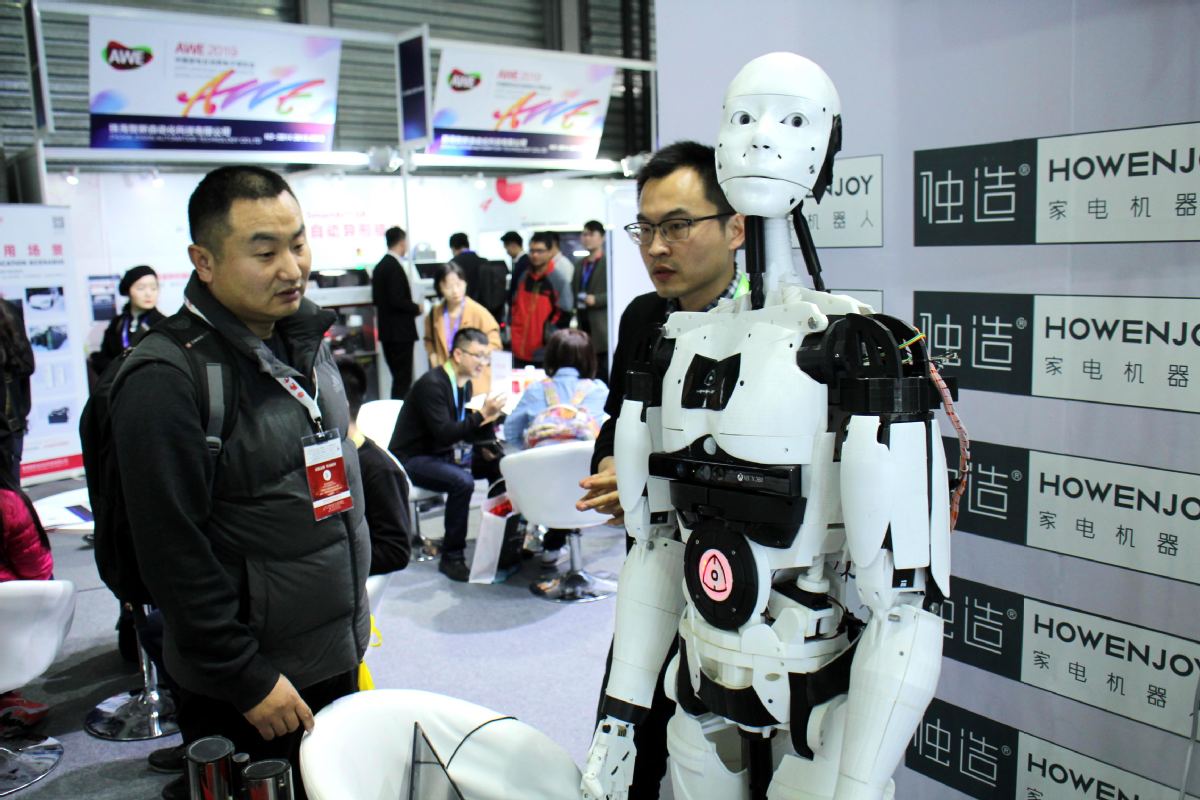Shanghai forms alliance for AI advantage


Shanghai has formed an artificial intelligence industrial alliance dedicated to "resources matchmaking" as the city gears up to become a global leader in pioneering the latest AI practices.
Formed at the end of April, the 22-member bloc summons leading AI enterprises from both domestic internet giants including Alibaba, Tencent and Baidu, and international powerhouses from Microsoft Asia Research Center (Shanghai) to ABB, a Swiss industrial conglomerate specializing in robotics and automation technology.
Once up and running, the alliance is designed to provide resources matchmaking for participating enterprises, an essential step to fostering AI's development given the rich application scenarios available in the city, said Zhang Hongtao, who oversees the AI unit at the Shanghai Municipal Commission of Economy and Informatization.
Apart from technology gurus, the alliance also brings in core players in the telecom, financial and manufacturing sectors in a bid to "create industrial synergies, offer specialized AI services and conduct overseas exchanges", said Wu Jianxiong, chairman of INESA (Group) Co Ltd, a key initiator of the organization.
Following the announcement of the alliance, the city has unveiled the first batch of 12 AI pilot scenarios, where local authorities have been advocating to leverage AI to power various industries.
These included using AI in teaching, medical diagnosis, cargo transportation, financial and civic services among others, said Zhang Ying, chief engineer of the commission.
To keep the momentum going, Shanghai has decided to solicit the second batch of AI best-practice solutions in 10 key areas including medical care, education, city management, culture and tourism, Zhang said.
A third pillar demonstrating Shanghai's AI ambition is the second World AI Conference in the second half of this year and a teaser-raising AI competition. Local authorities have kicked it up a notch for this year's match by recruiting overseas teams through roadshows in Israel, France, and the United Kingdom.
AI is a promising technology that can contribute to China's industrial breakthroughs and has the potential to transform cutting-edge science into commercial value, said Rui Mingjie, a professor of the School of Management at Fudan University.
"We see the gradual evolvement of robotics from performing low value-added tasks to serving high-end sectors such as security and connectivity. Government support and input are thus key to its development," Rui said in a seminar on international trade and industrial development.
Shanghai is the best place in China for technologies like AI and the internet of things because the city is home to comprehensive industrial chains and provides colossal industrial resources and real-life scenarios, said Shi Liangping, chief expert at the consultancy and research panel of the Shanghai Municipal Government.
"Seizing these opportunities, Shanghai is expected to leapfrog in overall development in the foreseeable future," Shi said.
According to a plan issued last year by municipal authorities, Shanghai is looking to lead the pack by becoming a global AI hub, with plans to expand the scale of its industry to more than 100 billion yuan ($14.7 billion) by 2020.
The inaugural WAIC last September attracted a host of high profile personalities including Turing Award winner Raj Reddy.




































